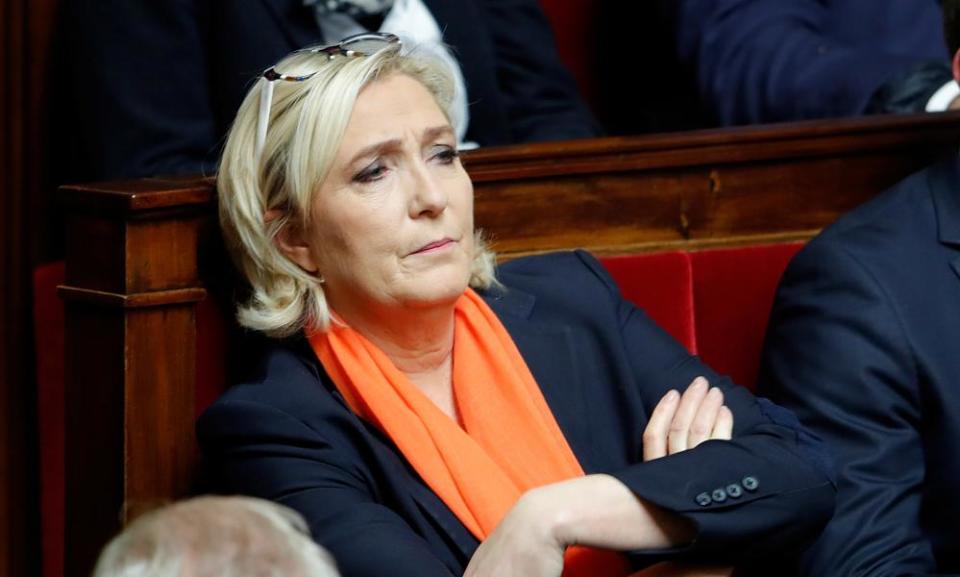The French far right is hijacking the Strasbourg shooting to sow division

Terrorism struck France again on Tuesday evening, when a 29-year-old attacker, since identified as Chérif Chekatt, killed three people and injured a dozen at a busy Christmas market in Strasbourg. With ongoing social unrest and polarisation laid bare by the gilets jaunes movement, France is now facing a new potential source of division. The attack has already proved a boon to far-right groups and conspiracy theorists who have seized on the event to disseminate their ideas and sow division.
France has suffered a number of terror attacks since 2015, and its response follows a familiar pattern. As authorities track down the attacker/s, opposition parties call for tougher security measures against terrorism, sometimes declaring an attack to be an act of terror before the full facts have been established. The latest attack in Strasbourg is no exception. Despite the fact that the French government called for restraint on Tuesday evening, many did not heed the official advice.
The leader of the Rassemblement National (RN) party, Marine Le Pen, described the attack as an “Islamist massacre” only three hours after the media reported the shooting, calling for “radical change” in the country’s response to terrorism. Several public figures reactivated the debate about getting tougher on fichés-S individuals – those persons identified on French security services’ watch list – before it became clear that the suspect was indeed on security services’ radar.
“Among the fichés-S, there are foreigners and French people. If, to start, we deported the foreigners, it would free up so many resources to watch those who have French citizenship,” Le Pen tweeted. Laurent Wauquiez, leader of the conservative party Les Républicains, implicitly agreed: “How many more attacks committed by fichés-S must we go through before adapting our laws to the fight against terrorism? What are we waiting for to finally wage a battle against the fundamentalism that declared war on us?”
The way in which the Strasbourg shooting plays into the hands of those who seek to divide French society became clear within minutes of the attack. Conspiracy theorists, alternative platforms and far-right militants online immediately seized on the news to spread disinformation. In particular, a “false flag” narrative has already sprung up with the conspiracy theory that the French government fabricated the attack to deflect attention from the gilets jaunes protests.

This idea became popular on alternative platforms and chatrooms known for hosting far-right sympathisers. “How about a completely peaceful, quiet, silent march of thousands of people with yellow vests this weekend in Strasbourg to honour the victims of the false flag?” a user wrote on the platform 4chan on Wednesday.
The theory was not confined to far-right online platforms. On a Facebook page calling for “Act V” of the gilets jaunes protests, several posts described the shooting as a governmental “manipulation”. Meanwhile on Twitter, social media users shared a tweet of French news TV channel BFMTV announcing the attack at 11.47am – hours before the event took place (the reality: the timestamp on the tweet was simply displaying west coast US time).
The fact that media outlets did not publish the name and picture of the attacker before Wednesday – to allow security forces to carry out their investigation and avoid fuelling collective anxiety – has also given conspiracy theorists an opportunity to claim that the attack was staged.
These conspiracy theories and manipulations add to a damaging cocktail of disinformation and distrust against mainstream media, fuelled by the events of the last few weeks in France. The grassroots gilets jaunes movement itself has not been immune to attempts at infiltration by far-right fringe groups and to the dissemination of fake news – from manipulated pictures to false rumours.
A few days ago, another event – France’s signing of the UN global migration pact in Marrakech – became a talking point for far-right militants and conspiracy theorists. On Twitter, the hashtag #PacteDeMarrakech appeared alongside the popular #GiletsJaunes hashtag in more than 35,000 tweets, with many falsely claiming that the pact would lead to a mass influx of refugees.
Far-right platforms and conspiracy theorists are capitalising on the atmosphere of general public discontent to conflate all these events and encourage polarisation. Many are already, directly or indirectly, linking the latest terror attack to France’s decision to sign the UN migration pact. “Gilets jaunes, Strasbourg: after the tax, are the dead and fichés-S just too much?” the far-right website Boulevard Voltaire asked in an article.
There are encouraging signs, however. Many on social media have condemned the “false flag” conspiracy theorists’ lack of respect towards victims and spoken out against attempts at dividing French society – but some damage has already been done.
After the tragic Christmas market shooting, the country needs to come together more than ever and heal our divisions. The far right’s hijacking of the attack is not helping.
• Cécile Guerin is a freelance French journalist based in London

 Yahoo News
Yahoo News 